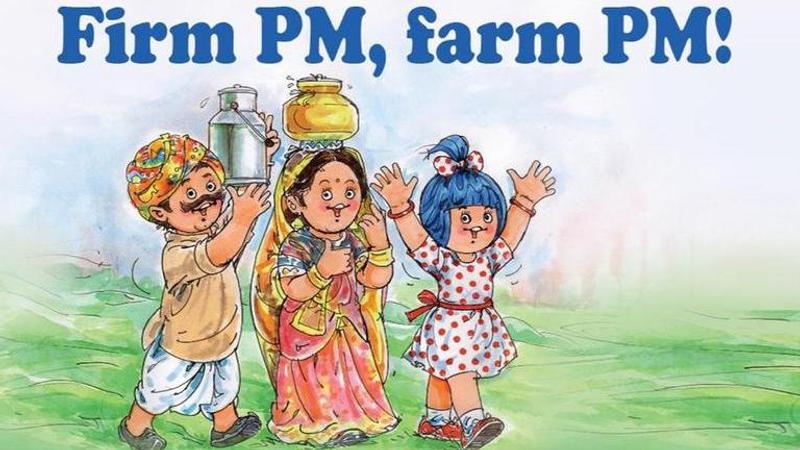Published 18:21 IST, November 5th 2019
Amul goes the whole 9 yards, commemorates PM Modi's big RCEP decision
The dairy products manufacturer has come up with yet another topical, this time with regard to PM Modi's firm stance of opting out of the RCEP agreement

Advertisement
Amul, the dairy giant, is known for its iconic topical advertisements which have been entertaining the audiences for years. The dairy products manufacturer has come up with yet another topical, this time with regard to Prime Minister Narendra Modi's firm stance of opting out of the Regional Comprehensive Economic Partnership (RCEP) free trade agreement in order to protect the interests of innumerable farmers, milk and dairy product manufacturers and Micro, Small and Medium Enterprises (MSMEs).
Amul Topical on PM Modi's decision to opt-out of RCEP
#Amul Topical: Interest of farmers, small firms and dairy sector
— Amul.coop (@Amul_Coop) November 5, 2019
safe-guarded in India’s non-signing of RCEP... pic.twitter.com/SfyRFgDV4E
Earlier in the day, Amul had also thanked the Prime Minister for taking a firm resolve for the protection of the Indian farmers and milk producers.
On behalf of 36 lac co-op milk producers of Gujarat, we wish to thank Hon PM @narendramodi for his exemplary leadership and support to 10 crore milk producer families of India. Your vision of supporting their livelihood will help doubling their incomes and make India stronger
— Amul.coop (@Amul_Coop) November 4, 2019
Amul had earlier flagged off the crisis that could have arisen had India accepted the RCEP agreement. Amul held several meetings with Commerce Ministry officials to apprise the government about the likely impact of offering zero duty imports of cheaper dairy commodities from Australia and New Zealand under the proposed RCEP agreement. Accepting the RCEP agreement would have meant increased inflow of cheaper products from RCEP member nations especially China, threatening the business of domestic producers, it had contended.
Amul also highlighted the "wrong case" built by economists and lobbyists working in the Centre for Regional Trade who wrongly portrayed the need for imports by "fabricating data".
Why did India back out?
India has decided to back out of the proposed RCEP agreement, even as 15 other nations, which participated in the negotiation for the pact, decided to go ahead and sign it in 2020. India decided to stay out of the RCEP because the draft agreement did not provide adequate protection against the surge in cheap imports, especially from China to India after the implementation of RCEP. The opt-out was in a bid to protect the interests of farmers, MSMEs and the dairy sector in the country.
17:17 IST, November 5th 2019




